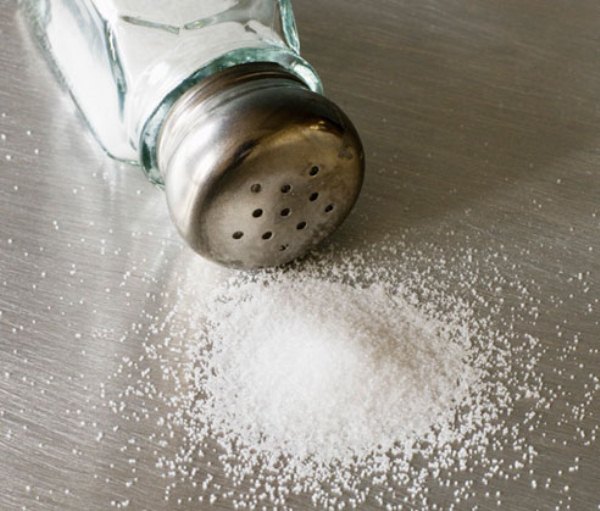Common salt is an essential ingredient of our diet. It has been in use from primitive times for taste and flavor. The utilitarian perspective of salt has seen many refinements beginning from unrefined raw salt to refined table salt which is used nowadays. Salt is a compound of sodium and chlorine. Its chemical formula is NaCl. It is obtained as a mineral from rock ores, oceans, and seas and can be artificially produced in laboratories under controlled conditions. At the initial stage it is hard in texture and has a light pinkish or light greyish appearance.
Salt is one of those essential minerals which is required by living beings to sustain the life processes. Common salt is necessary for water regulation of body. It helps in transmission of information among nerve cells and it helps the cells to maintain action potential. Salt helps in maintaining osmotic balance among cells by regulating the content transmission in and out of them. In other words it regulates cell traffic up to a large extent. Here the principle of equilibrium comes in to play again and thus the living body only needs optimized quantity of salt only.
Some harmful effects of salt is mentioned below:
1. Excessive salt means excessive sodium in body. So, consuming excess of it results in excessive water retention in body. Kidneys will have a difficulty in disposing excessive salt and consequently there will be more pressure around the heart, which might affect its regulatory functions.
2. Too much of salt intake results in cardiovascular malfunctions. There is a significant disruption in functional aspects of the arteries and veins and heart at large. It results in shrinkage of the vessels which might result in the restricted fluid flow.
3. Digestive system has a serious impact because of heavy salt intake. It results in major stomach/gastric cancers. Many studies reveal that a high salt intake results in abnormal cell division of stomach tissues resulting in cancer. It has a serious impact on pepsin content in body. Once the digestive enzymes are impacted, there is an imbalance in acidity content, digestive quality and egestion of waste products. It tends to form other acids which effect digestive mechanism as a whole. Ulcers are quite prominent consequences of heavy salt intake. It accounts for 80 to 90% of stomach and duodenum ulcers.
5. One of the main hazards of high salt intake is hypertension which is quite prevalent among most of the people. It increases blood pressure which may result in cardiac arrest, atherosclerosis, stroke, paralysis. An inter salt study was conducted across various study centers comprising of 10,000 people. The results showed a relation between high blood pressure and excessive salt intake.
6. High salt intake may result in hair loss and discoloration of the hair. Males may suffer from baldness as a result of excess of salt.
7. Women usually suffer from osteoporosis in their middle age. Osteoporosis is caused due to lack of calcium in body. High level of salt decreases optimum calcium absorption in body. So women may suffer from osteoporosis in case they are in a habit of consuming more and more salt. Osteoporosis further results in weak and painful joints.
8. High salt intake increases the density of blood by increasing our bile secretion. The body vitality gets decreased this way which results in skin dryness, skin sores, and bleeding in case of chapped skin. Therefore, medics advise less salt consumption to patients who suffer from skin diseases.
9. High salt intake results in enlargement of heart`s prime muscular tissue which may cause malfunction and restriction in its blood pumping function. The supply of blood to the whole body may get disrupted as a result of this. Since the heart beat is one of the main sustaining processes of the living creatures, its malfunctioning may prove fatal.





